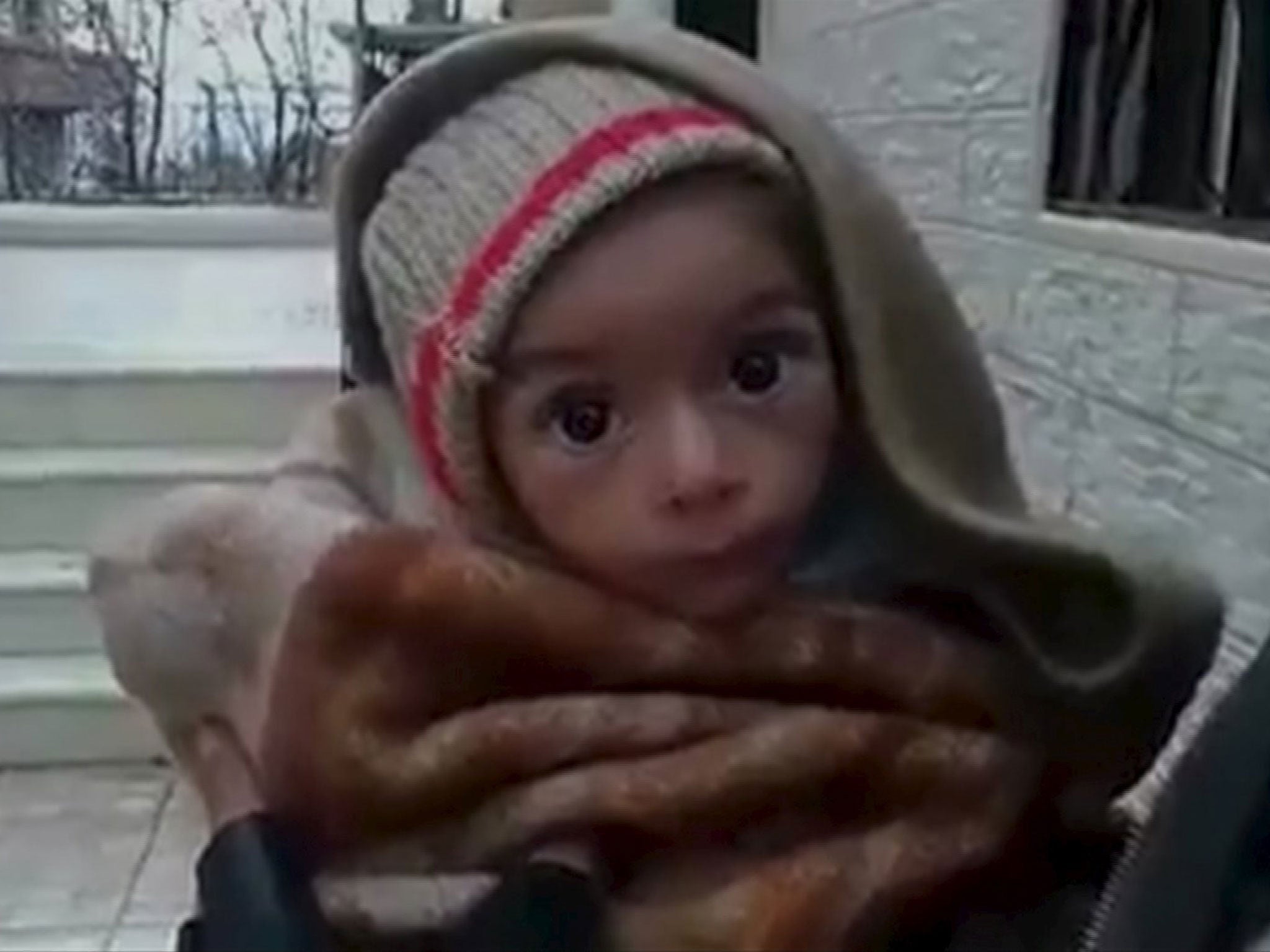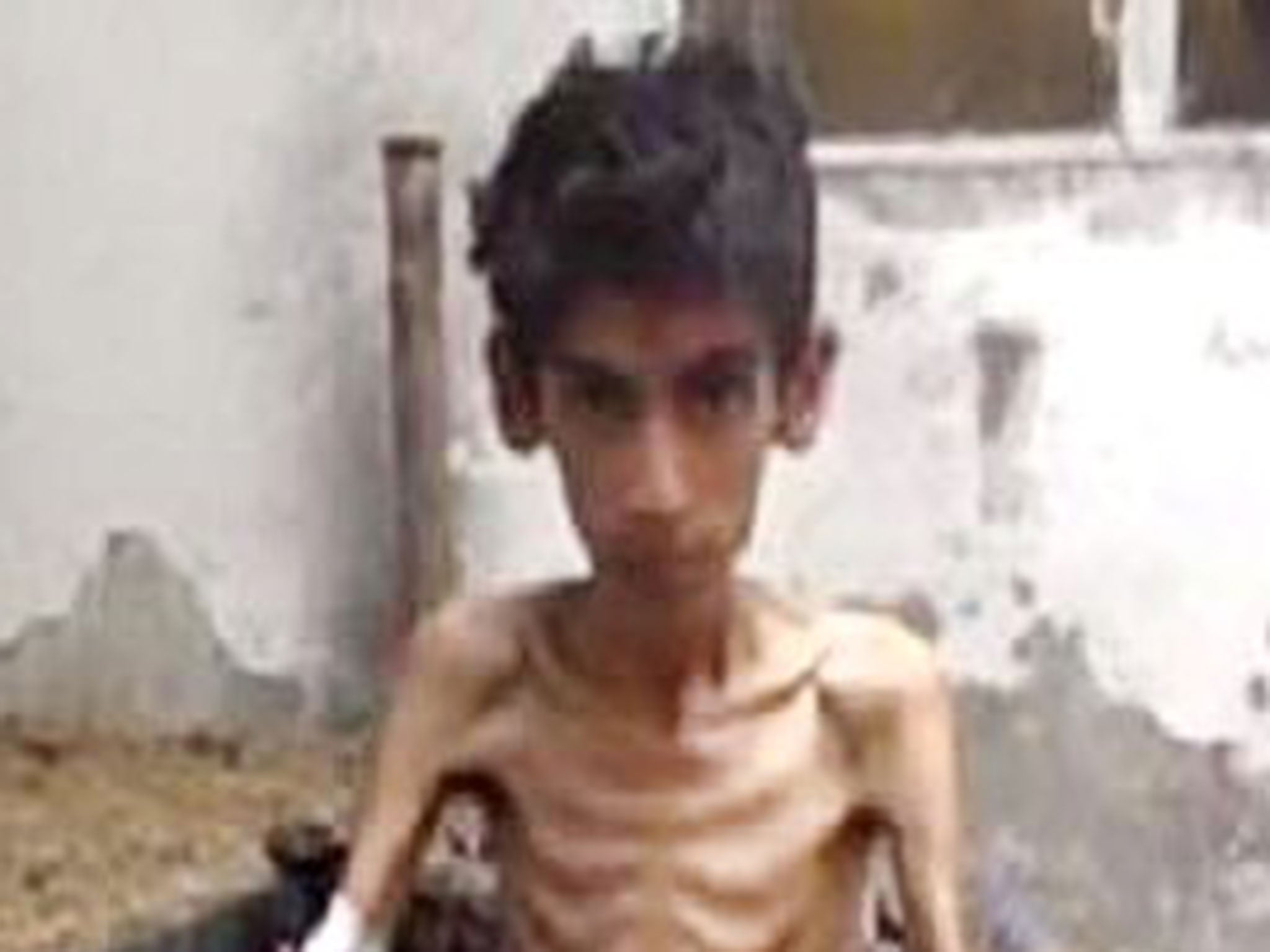Syria civil war: 23 people die of starvation in besieged Madaya where 40,000 are hungry, warns medical charity
Rescue worker says one or two people have been dying daily of hunger over the past week

Your support helps us to tell the story
This election is still a dead heat, according to most polls. In a fight with such wafer-thin margins, we need reporters on the ground talking to the people Trump and Harris are courting. Your support allows us to keep sending journalists to the story.
The Independent is trusted by 27 million Americans from across the entire political spectrum every month. Unlike many other quality news outlets, we choose not to lock you out of our reporting and analysis with paywalls. But quality journalism must still be paid for.
Help us keep bring these critical stories to light. Your support makes all the difference.
Aid agencies have expressed alarm about dire conditions in a besieged town west of Damascus where people have been eating cats and grass to stay alive and as many as 23 people are reported to have died of hunger.
No food has arrived in the rural town of Madaya since October, and desperate residents have posted photographs on the internet showing frail, skeletal corpses and emaciated people, including children.
The medical charity Doctors Without Borders said 23 people have died of starvation since 1 December at a clinic the group supports in Madaya, six of them infants less than 1 year old.
The town has become “an open-air prison,” Brice de le Vingne, director of operations for Doctors Without Borders, said in a statement. Desperate people who try to flee have been injured or killed by bullets or by land mines planted around the town, he added.
According to Hassan Abu Shadi, a rescue worker in Madaya, one or two people have been dying daily of hunger over the past week, since snow fell on the mountain town and blanketed the last remaining vegetation.
"We were eating leaves and grass, but these days there are no more leaves because of the snow," he said, speaking by telephone. "There is nothing left but salt and water."

The United Nations said in a statement that it has received "credible" reports of people dying of starvation and being killed while trying to leave the town. It welcomed what it said was a commitment from the Syrian government to allow aid to be delivered soon.
Madaya is an opposition stronghold that has been besieged by pro-government forces since July. The United Nations put the number of people trapped in the town at 42,000, but Doctors Without Borders said there were 20,000.
Fighting over Madaya, which fell into rebel hands in 2012, was supposed to have ended last summer under a cease-fire deal that also encompassed two rebel-surrounded towns in northern Syria. According to the terms of the cease-fire, rebel fighters from Madaya and nearby Zabadani were escorted by the United Nations to Turkey, and government loyalists from the towns of Foua and Kefraya were permitted to leave for government-held areas of Syria.
The deal stipulated that food aid and other supplies be allowed to reach civilians inside the towns. But only one delivery was made to Madaya, on 18 October, and residents since then have almost entirely run out of food.
The United Nations pointed out that it requires Syrian government permission to send food aid to the estimated 400,000 needy people living in various areas around Syria that are besieged by government forces. But in the past year, only 10 per cent of requests have been granted, the United Nations said.
People are going hungry in many of those locations, but Madaya appears to be the worst-afflicted by far.
The Syrian government has long used siege tactics to compel the surrender of towns that fell under rebel control during the uprising against President Bashar al-Assad. At the entrance to Madaya, Abu Shadi said, pro-Assad fighters have hung a sign proclaiming "Kneel or starve," a slogan intended to capture the stark choice confronting rebels in the besieged communities.
He said most of the fighters surrounding the town belong to the Lebanese Shiite movement Hezbollah, which supports Assad and has been leading the battle to recapture Syrian towns in the vicinity of the nearby Lebanese border.
Hezbollah denied the allegations, saying that rebels were preventing residents from leaving. "Terrorist groups are exclusively responsible for starving out the civilians in the town," said a report carried on the website of Hezbollah’s al-Manar television station. The towns of Foua and Kefraya also have not received aid, the report said.
Although the reports of starvation deaths cannot be independently confirmed, videos and photographs posted on social media showing emaciated people suggest that conditions are dire. In one, a mother is shown feeding her gaunt 16-month-old daughter sips of jam diluted with water, because, she says, there is no milk. A photo circulated on Tuesday showed the skeletal frame of a man who had died of hunger that day.
The United Nations said the Syrian government promised to allow aid to be delivered "in the coming days" to Madaya as well as the two northern towns surrounded by rebels.
Copyright: Washington Post
Subscribe to Independent Premium to bookmark this article
Want to bookmark your favourite articles and stories to read or reference later? Start your Independent Premium subscription today.
Join our commenting forum
Join thought-provoking conversations, follow other Independent readers and see their replies
Comments